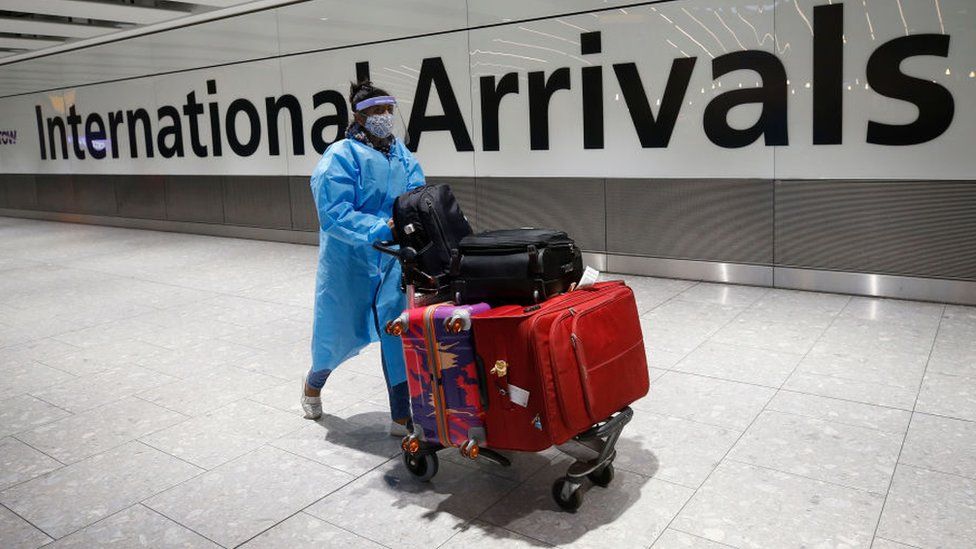Angola, Botswana, Eswatini, Lesotho, Malawi, Mozambique, Namibia, Nigeria, South Africa, Zambia and Zimbabwe are on the list.
The red list was reintroduced in late November as a precaution after the emergence of the Omicron variant.
But Health Secretary Sajid Javid said it had spread so widely the rules no longer had much purpose.
“Now that there is community transmission of Omicron in the UK and Omicron has spread so widely across the world, the travel red list is now less effective in slowing the incursion of Omicron from abroad,” he told parliament.
“Whilst we will maintain our temporary testing measures for international travel we will be removing all 11 countries from the travel red list effective from 4am tomorrow morning.”
Currently, all UK arrivals from red list countries must pay for and self-isolate in a pre-booked, government-approved hotel for 10 days.
- What tests do I need if I travel abroad? – Read on BBC
They must also take Covid tests within 48 hours of setting off for the UK and PCR tests within two days of their arrival.
Some arrivals have already paid thousands of pounds to stay in government-approved quarantine hotels, and there have been complaints of chaotic organisation and inedible food during their stays.
Mr Javid said he had asked for urgent advice on whether those currently in managed quarantine would be able to leave early.
He also said he was “very persuaded” by calls to reimburse people and hoped to make an announcement soon.
The point of putting countries on the red list was to act quickly to slow the spread of Omicron.
Now it has spread in the community, the government doesn’t think putting people from a limited list of countries in hotels is useful.
It will be welcome news to people with plans to come to the UK from countries like South Africa and Nigeria, or who had delayed their return from those countries.
But it will be frustrating for those who did get caught up in the revival of the red list, which only started about a fortnight ago. Some people currently staying in hotels would like to see the government pay their costs.
The travel industry wants all restrictions removed. Businesses see testing measures as putting a dampener on their recovery. It seems the government is not prepared to go that far, just yet.

The move follows anger from African countries, with the UN describing the ban on non-UK residents entering England as “travel apartheid”.
The travel industry had also warned the restrictions were hurting business.
Tim Alderslade, head of trade group Airlines UK, said emptying the red list made “complete sense”, but that the government should also scrap pre-departure and day two tests for all arrivals.
“If the red list isn’t necessary, given that Omicron is established here at home, then neither are the costly emergency













No Comment